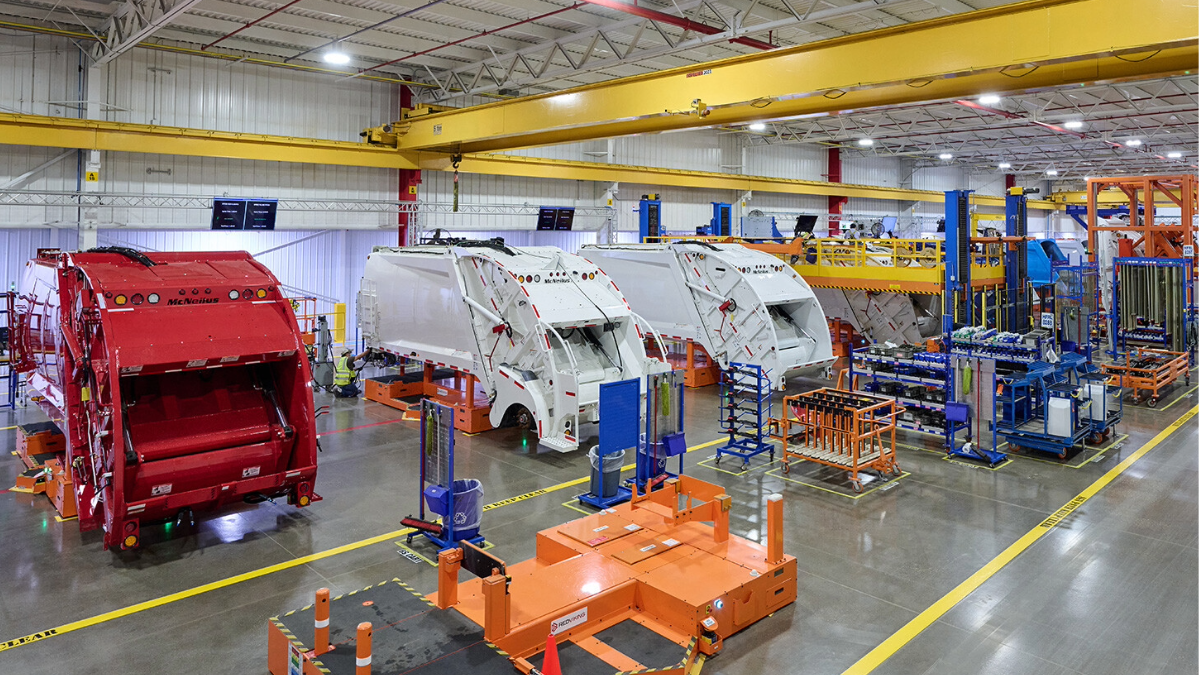PRECISION THAT BUILDS RELIABILITY
Advanced manufacturing integrates robotic assembly and digital systems to ensure accuracy at every stage of production. This consistency reduces human error and results in trucks with greater structural integrity. The outcome is a more reliable vehicle with fewer breakdowns and less downtime. For fleet managers, this means more trucks available for daily routes and fewer costly interruptions.
Investing in trucks manufactured through these processes ensures long-term durability. Less time in the shop translates directly into better service continuity and stronger return on investment.
FASTER PRODUCTION AND DELIVERY
Modern production facilities equipped with advanced manufacturing tools are able to streamline workflows. Automated planning and real-time monitoring optimize every stage—from material supply to final assembly. This allows manufacturers to shorten delivery timelines significantly.
For cities and companies that need to replace or expand their fleets quickly, this speed is a game-changer. Instead of waiting long months for new vehicles, operators can get their trucks sooner and keep services running without delay.
PRIORITIZING HEALTH AND SAFETY
Beyond speed and precision, advanced manufacturing also enables the integration of features that directly improve operator safety. Ergonomic cab designs, automated lifting systems, and reinforced components are more easily standardized when production is driven by robotics and digital models.
This approach minimizes operator strain, reduces the risk of injuries, and creates a safer work environment. For organizations, this translates into healthier teams and fewer incidents that could disrupt operations.
SUSTAINABILITY THROUGH SMARTER PROCESSES
Advanced manufacturing also promotes sustainability. By optimizing cutting, welding, and material usage, waste is minimized during production. Stronger yet lighter components also contribute to better fuel efficiency once trucks hit the road.
These improvements support both environmental responsibility and financial savings. Municipalities and companies benefit from greener operations without sacrificing performance.
CUSTOMIZATION TO MEET UNIQUE NEEDS
Another strength of advanced manufacturing is flexibility. Digital design systems allow manufacturers to quickly adapt specifications to meet the unique requirements of each customer—whether that means body capacity, type of loader, or specialized features.
This adaptability ensures every fleet receives trucks that truly fit their operational needs, improving efficiency from day one.
CONCLUSION: A STRONGER FUTURE FOR REFUSE COLLECTION
Advanced manufacturing in refuse trucks represents more than a technological shift. It’s reshaping how communities handle waste collection by delivering trucks that are faster to build, safer to operate, and more sustainable for the future. For municipalities and private operators, this innovation is a clear pathway to stronger service and long-term efficiency.

